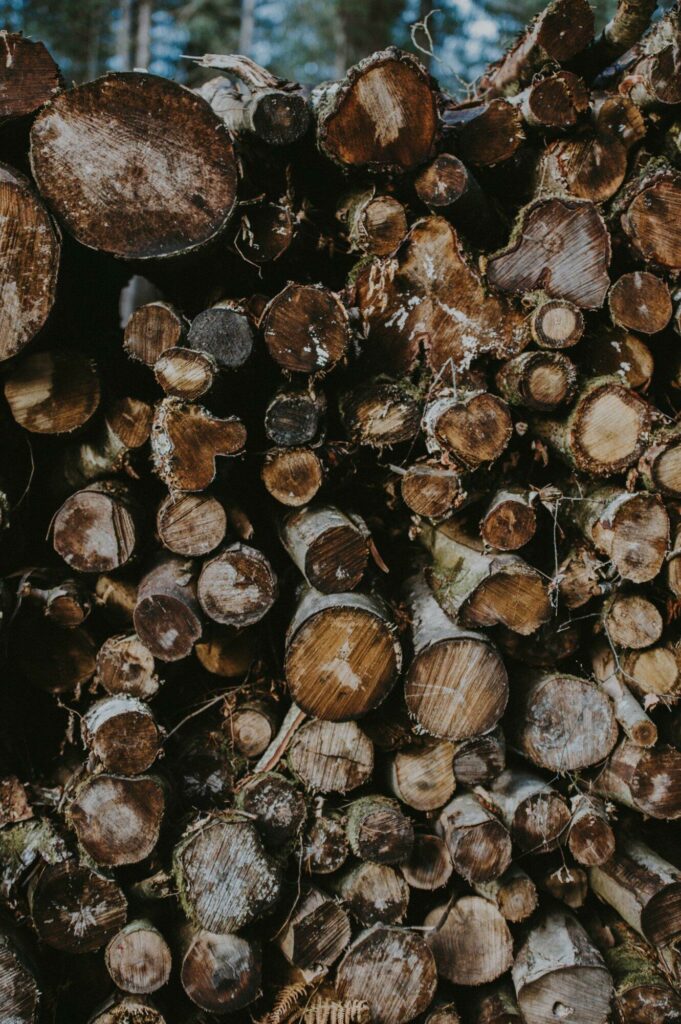If you’re thinking about installing a rustic mantel for your fireplace or adding wooden furniture or maybe (reclaimed!) wood shelves to your home, do you know which type of wood is appropriate? When you compare hardwood vs softwood, you will find many differences.
Hardwood vs Softwood Differences
Could you easily identify hardwood? Identify types of softwood?
While we all know what wood is and what most wood looks like, most of us don’t know the key differences between hardwood and softwood. If you don’t know how to identify hardwood or how to identify softwood, we’ve got some key characteristics, uses, and other facts about hardwood and softwood.
| Hardwood | Softwood | |
| Definition | Hardwood comes from deciduous trees which loses their leaves annually. Deciduous trees also produce seeds with a nutty or fleshy covering. | Softwood comes from coniferous trees which remain evergreen and produce needles and cones. Coniferous trees bare exposed seeds. |
| Uses | Garden furniture, flooring, tools, musical instruments, barrels, and decks. (Think about items that need to last.) | Windows, doors, paper, Christmas trees, and home woodworking projects. (Absorbs finishes well, not good for being in exposed to weather elements.) |
| Density | Higher Density – harder, stronger, and more durable | Lower Density – easier to cut and work with, lighter weight |
| Aesthetics | Darker brown, reddish-brown | Pale yellow, light brown |
| Examples | Teak, Elm, Oak, Alder, Beech, Hickory, Mahogany, Maple and Walnut | Cedar, Fir, Pine, Spruce, Redwood and Juniper. |
| Cost | More Expensive | Less Expensive |
| Lifespan | 15 + years with little maintenance | 10 years if well maintained & treated properly. |
| Growth | Slow growing & takes longer to dry | Fast growing, dries quickly, easier to cut |
| Fire Resistance | More fire resistant | Less fire resistant |
| Maintenance | Very little maintenance – only needs to be “washed” once a year to rid it from algae. Protector does not need to be applied more than once. | More prone to decay – should not be exposed to weather elements over long periods of time. Recommended to use a protector and dry. |
To learn more, check out this post from the University of Pennsylvania.

Written by Jake Park
Jake is the founder of Modern Timber Craft and is a seasoned reclaimed woodworking enthusiast with over 20 years experience.


